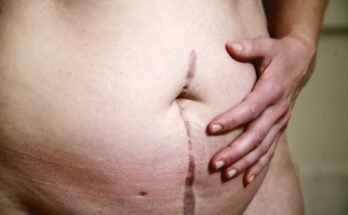Losing weight can be a powerful goal for many, but what’s often overlooked are the unexpected side effects that come with it. One of the most alarming changes I personally experienced—and what people frequently wonder about—is hair loss. The answer is yes, there’s a real connection. When rapid, significant dietary changes are made, especially through restrictive diets or surgery, it puts pressure on the body. This pressure can impact your health, particularly your scalp and hair follicles, leading to temporary thinning or even more noticeable loss.
In several cases, especially after extreme dieting or medical procedures, the person may lose more than just inches—they may lead their body into stress, nutrient deficiencies, and hormonal shifts that cause this frustrating condition. It’s something that often occurs after intense weight changes. That’s why this article aims to explore what really happens, and how you can stop or at least support more healthy hair growth during the journey. When these patterns show up, it’s essential to address them—not just treat the surface, because what’s happening inside matters just as much as what you see on the outside.
Can Weight loss cause alopecia?

One of the possible factors behind alopecia areata is severe stress, which can deeply affect the body’s immune and hormonal responses. This form of hair loss is believed to occur when emotional or physical stress becomes a cause that interrupts the normal cycle of hair growth, leading the immune system to mistakenly attack hair follicles. Recognizing severe stress as a key player in this condition helps in understanding the deeper link between emotional health and sudden hair shedding.
Why Does Weight Loss Cause Hair Loss?
Sudden weight loss often brings unexpected side effects, and one of the most noticeable is hair loss. When the body experiences stress from reduced caloric intake or extreme calorie deficits, the hair growth cycle is disrupted. Hair strands move from the active anagen phase into the resting telogen stage, causing a rise in shedding known as telogen effluvium. This temporary condition results in thinning and even significant hair loss.
Nutritional imbalances play a big role in this process. Diets that are lacking in essential nutrients like iron, zinc, and biotin fail to provide the energy needed to support healthy hair follicles. Without proper function, the strands become weaker and more prone to falling out. Hormonal fluctuations, especially during rapid weight loss, also trigger changes in hormone levels, negatively affecting overall hair health.
Though this shift in the cycle is often reversible, recognizing the signs early is crucial. Paying attention to caloric intake, nutrient quality, and maintaining balance can help reduce the risk of disrupting the natural rhythm of hair growth. The connection between weight, health, and hair is closely linked through both physical and hormonal factors.
Crash dieting
rash dieting often seems like a fast fix, but it can quietly trigger hair loss. As early as the 1970s, researchers observed how poorly planned diets could affect the body’s ability to grow properly. One 2015 study involving 180 women linked rapid weight loss, calorie restriction, and missing nutrients to increased cases of diffuse hair loss. Diets that are too strict usually lack enough overall calories, protein, zinc, and essential fatty acids. These are all vital for healthy hair. Without them, hair weakens, and side effects begin to occur—starting with noticeable thinning.
What’s more, psychological stress from extreme diets adds to the damage. Among the common causes of hair loss, nutrient deficiencies like iron deficiency stand out, especially in cases of long-term dieting. Historical studies and patterns, including those from the 1970s, show how following crash diets can lead to shedding within just eight weeks. When people deprive the body of key nutrients, hair becomes one of the first areas to reflect the imbalance.
Very low protein diets
Very low calorie and low protein diets often trigger more than just weight changes—they can quietly affect hair growth too. When the body doesn’t receive enough protein, it starts to prioritize vital functions like tissue repair, digestion, and hormone production, sidelining non-essential tasks like hair production. That’s when hair loss may show up. A diet lacking essential amino acids, particularly histidine, leucine, valine, and cysteine, leads to deficiencies that are often observed in those facing androgenic alopecia or TE. In one study involving 100 people, researchers found large percentages of participants with these missing nutrients.
These building blocks of keratin, the structural protein that forms hair, are crucial for healthy hair growth. Without them, protein malnutrition can occur, which is a common cause of hair thinning during weight loss. The source of the issue often ties back to protein-dependent processes in the body, such as water balance, pH regulation, and internal structural support. Different types of alopecia have been linked to nutritional gaps, underlining how important it is to ensure balanced intake during any weight loss journey.
Weight loss surgeries
Weight loss surgery, especially procedures like sleeve gastrectomy, often results in rapid weight loss, but it can also bring unexpected effects like hair loss. When the body undergoes a major change, especially in the stomach and intestines, it may struggle to absorb vital nutrients. This leads to deficiencies in protein, vitamins, and minerals such as zinc and vitamin B12—nutrients that are essential for maintaining healthy hair. As a result, hair loss becomes a common side effect, particularly among women. The reduced capacity to process nutrients post-surgery raises the risk of hair shedding, especially when malabsorption from intestinal bypass is involved.
Multiple studies have shed light on this issue. A 2018 study involving 50 people who had undergone this surgical procedure reported hair loss in 56% of participants, with many cases starting 3–4 months after surgery. In a 2020 follow-up with 112 women, 72% had experienced hair fall. Of those, 79% said it started within the same time frame and lasted an average of 5.5 months. Another 2021 report showed nearly 75% had similar outcomes, with nearly 80% of cases reported by women. These patterns highlight how different types of surgery can impact hair through nutrient loss and stress responses in the body.
Restrictive diets
Following restrictive diets or extreme crash diets might seem like a fast way to lose weight, but they can lead to unexpected side effects like hair loss. When the body doesn’t receive enough calories, especially through very low calorie diets, it struggles to get the nourishment needed for healthy hair. These diets often lack essential nutrients, creating a nutrient deficiency that can disrupt the natural growth cycle of hair. Without proper protein, iron, or zinc, the hair becomes weak and may fall out more easily. Additionally, selenium and essential fatty acids play a big role in keeping hair thick and strong. Their absence contributes to noticeable shedding.
On top of that, restrictive dieting brings not just physical but emotional strain. The stress from constantly managing food intake, especially when paired with major stress from life or body image pressure, further increases the risk of deficiencies. The body starts to shift its focus from non-essential functions—like hair growth—to survival. As a result, the source of hair trouble often isn’t the weight loss itself, but the harsh method used to get there.
Impact of Sudden vs. Gradual Weight Loss on Hair Health
When rapid weight loss occurs, it can often lead to noticeable hair thinning. This sudden change puts stress on the body, especially when it involves crash diets or extreme calorie restriction. Such approaches frequently result in deficiencies of vital nutrients like iron, zinc, and protein—all of which are critical for hair strength and density. Without these nutrients, hair may enter a temporary shedding phase, which is commonly observed when quick results are prioritized over health.
A slower, more measured approach—such as losing about 1 to 2 pounds (0.5 to 1 kg) per week—can help prevent these effects. Allowing the body time to adapt supports better nutrient absorption by the hair follicles and reduces the risk of shedding. Over time, this method encourages healthy growth to return, giving both the hair and the individual’s confidence a chance to recover. It’s a strong reminder that how weight is lost matters just as much as the result itself.
Is hair loss dangerous?

While hair loss after weight loss might seem like a cosmetic issue, it can sometimes point to deeper underlying causes. In many cases, rapid or poorly planned weight changes lead to nutrient deficiencies due to extreme calorie restriction or protein restriction. These gaps in nutrition can trigger serious health consequences. A common outcome is iron deficiency anemia, which not only affects hair but also contributes to muscle loss, poor brain function, and even infertility. Some individuals also experience heart conditions, persistent depression, and issues with immune system function as a result of imbalanced diets. The signs often go unnoticed until the side effects become physically visible or emotionally overwhelming.
There’s also an increased risk of intestinal issues, decreased muscle function, and long-term heart problems if these habits continue. Some people may even develop autoimmune conditions that complicate recovery further. This is why consulting a healthcare provider becomes important—especially when medical conditions are suspected alongside the hair changes. Proper support can uncover how much of the hair thinning is related to diet versus something more serious, and ensure your immune function stays intact during your wellness journey.
Is telogen effluvium dangerous or permanent?
When someone goes through rapid weight changes, especially under a restrictive regimen, it can shock the body into a phase called telogen effluvium, where hair loss becomes noticeable. This type of shedding often happens because the body is reducing key nutrients needed for hair production. But the good news is that the condition usually isn’t permanent. Within a few months, the body adjusts, and hair often resumes its normal growth cycle. However, if the diet lacks essential elements—especially iron—this can lead to iron deficiency anemia, which may bring about serious health complications.
Severe calorie restriction can result in nutrient deficiencies, causing issues like malnutrition, decreased muscle function, cardiorespiratory stress, and even stomach issues. In some cases, suppressed immunity and conditions such as depression, anxiety, or infections might appear. For children, this could mean developmental delays, while for those pregnant, it might lead to pregnancy-related concerns. In more extreme cases, these deficiencies might even trigger heart problems, making the shedding more than just a cosmetic concern—it reflects a deeper need to support the body from the inside.
How Long Does Hair Loss Last After Weight Loss?
Hair loss after weight reduction is usually temporary, lasting around three to six months. During this time, the body goes through adjustments as nutrient levels begin to stabilise. Once the body adjusts, hair growth often resumes naturally. However, if deficiencies in key nutrients persist or if weight is lost too rapidly, thinning can last much longer than expected.
To help recovery, a gradual approach to losing weight, combined with proper nutrition, is essential. This strategy supports the body’s ability to recover while minimising long-term effects on hair. Maintaining balanced meals helps prevent extended loss periods and supports stronger regrowth by delivering the right nutrients at the right time.
How to Prevent Hair Fall During Weight Loss?
Many experience hair fall during weight loss, especially when key nutrients are missed. Alopecia linked to dieting often comes from ignoring proper nutrition. Preventing this requires forming healthy habits that support both body goals and hair health. A balanced diet as part of any weight loss plan should include foods rich in vitamins, minerals, and proteins like iron, biotin, and omega-3 fatty acids. These are found in spinach, lentils, lean meats, eggs, nuts, fatty fish, and flaxseeds. They help strengthen hair, fight iron deficiency, and support growth, reducing the chance of hair thinning.
Equally important is scalp care and internal balance. Staying hydrated by drinking enough water helps moisturise the scalp and maintain hair follicle function. A healthcare provider may suggest a supplement such as vitamin D, iron, zinc, or vitamin B12 to fill any dietary gaps, especially in cases involving weight loss surgery. Following a dietary pattern that restricts important groups — like in vegetarian or vegan diets — may lead to nutrient deficiencies, so nutrient-dense alternatives are essential. Crash diets, restrictive diets, and rapid weight loss should be avoided, as they carry the risk of side effects, impact mental health, and can trigger hair loss and weight regain.
Other simple practices further help protect hair. During workouts, avoid tight hairstyles that put tension on hair follicles. Use a gentle, clarifying shampoo to cleanse sweat and remove buildup from the scalp. Managing stress is also key, since it’s a major trigger for hair loss. Techniques like mindfulness practices, yoga, deep breathing, and meditation help support both physical health and sustainable weight loss, allowing the body to function optimally without sacrificing scalp or hair care.
Vitamins to Prevent Hair Loss During Weight Loss

During weight loss, many experience unexpected hair loss, and one of the primary causes is nutritional deficiencies. When the body lacks essential nutrients, it begins to prioritize survival over things like hair health. That’s when the follicles weaken and thinning begins. A strong healthcare provider often recommends specific vitamin and minerals to support your system and prevent this. For example, Vitamin D helps create a healthy environment for follicles and regulates the growth cycle. Similarly, Iron improves oxygen flow to the scalp, helping in preventing iron deficiency–related shedding. From experience, the inclusion of Zinc, which repairs and maintains follicle health, makes a noticeable difference.
To avoid breakage and promote fuller strands, the body needs Biotin (also known as Vitamin B7) which strengthens hair and prevents damage. For real structure, Protein is a must—it builds keratin, the core structural component of hair. All these nutrients can come from whole foods or supplements depending on what your provider suggests. What’s clear is this: with the right balance of nutritional intake, including vitamins, minerals, and Protein, you can protect your hair from the toll that extreme weight changes may bring.
How to Thicken Hair After Weight Loss
After weight loss, it’s common to notice thinner hair or even lost strands due to sudden changes in nutrition and body stress. To help restore volume and boost regrowth, it’s important to follow a consistent routine. Regular scalp massages can improve blood circulation, which helps in delivering more nutrients to hair follicles, ultimately encouraging growth. Using oils like argan oil or coconut oil adds deep nourishment to the roots. This simple practice, done with care, can be the start of healing for stressed-out strands.
To thicken the hair and bring back strength, include protein-based masks and conditioners in your hair care regimen. These products help strengthen and rebuild strands from root to tip. For some, over-the-counter treatments like minoxidil may be effective in regrowing hair that was lost during weight loss. Just remember, it takes time—nothing happens overnight. Focus on gentle practices, proper nutrition, and staying consistent with your approach. With patience and the right treatments, your hair can become thicker and healthier again.
How to facilitate hair regrowth
Hair loss triggered by rapid weight loss is often linked to nutrient deficiencies that weaken the hair follicles. When your body lacks important nutrients like zinc and iron, it struggles to support hair regrowth. This is common in cases where someone follows a restrictive diet or a sudden crash diet that doesn’t provide enough calories to meet basic health needs. A deficiency in key vitamins and minerals leads to a drop in energy and recovery, especially when your nutrient stores are already low.
To support the growing process again, it’s important to return to a balanced diet filled with nutrient-dense foods. These foods restore what the body has lost and help strengthen the roots of the hair. In some cases, a supplement may be needed, especially if food alone isn’t enough to fix the imbalance. A healthcare provider can identify the real cause behind the hair thinning and recommend what steps are needed to rebuild health and encourage consistent regrowth.
Prevention and treatment
When losing weight too quickly, the body may face nutrient deficiencies that interrupt natural hair growth cycles, leading to telogen effluvium. This condition often arises when following crash diets or quick fixes, which lack balanced nutrition. The sudden drop in essential micronutrients and macronutrients can affect how the body functions, impacting not only energy but also scalp health. Proper prevention begins with a steady, thoughtful approach to weight loss, one that prioritizes a long-term plan over rushed results.
To support recovery and treatment, focus on a whole-food diet rich in hair-supporting minerals like iron and zinc. Adding foods such as shellfish, chicken, fish, nuts, seeds, eggs, dairy, cashews, turkey, spinach, broccoli, quinoa, and legumes helps supply key elements. If dietary intake isn’t enough, supplementation might be needed, and working with a licensed nutritionist ensures personalized guidance. Over time, with consistent care, many find that the condition resolves, marking the success of both body and hair recovery.
Why can hair loss occur after weight loss?
After rapid weight loss, the body often enters a state of shock. When restrictive diets are followed, they can lead to nutrient deficiencies that silently affect more than just your energy. A common result is hair loss, particularly in the form of acute telogen effluvium (TE). This condition typically shows up around 3 months after a triggering event, such as sudden weight loss. The scalp begins to shed more hair than usual, which can be deeply unsettling.
In some cases, if these patterns continue, chronic TE may develop, lasting more than 6 months. Prolonged imbalance can even reveal deeper causes like androgenic alopecia, also known as male pattern baldness or female pattern baldness. The link between diet and hair loss is often underestimated, but when the body is under pressure and not receiving the nutrients it needs, even something as routine as weight loss can lead to unexpected outcomes.
Does losing weight help hair growth?

Managing body weight through healthy weight management not only reduces obesity risks but also helps regulate stress hormones and other hormone imbalances that contribute to hair loss. Taking steady steps toward a healthier lifestyle supports balance within the body, which can lead to improved hair growth over time.
Should I be worried about alopecia?
Alopecia, especially areata, may not harm your physical health, but its hidden impact is often underestimated. Losing hair can deeply affect your thoughts, emotions, and behavior, especially when society and social groups link appearance with confidence. Many people experience high stress, anxiety, or even depression, not because of the condition itself but due to how they feel psychologically and psychosocially. These emotional challenges may arise as people compare themselves to others or face silent judgments in social settings, creating a cycle that impacts mental health and self-worth.




